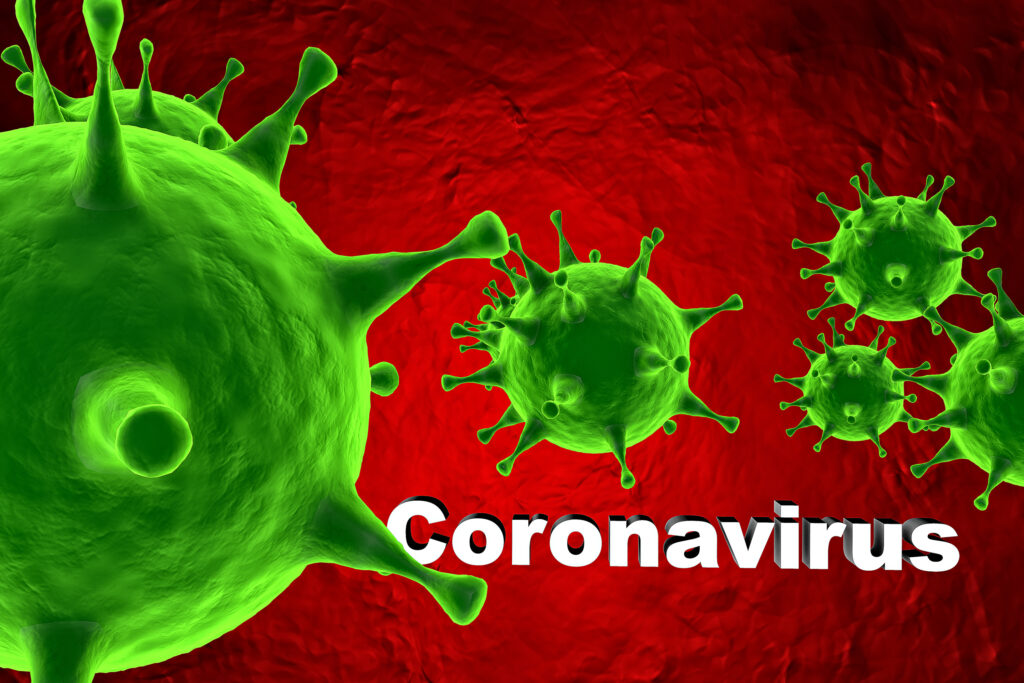
There are literally thousands of viruses that you will be exposed to in your life. Some even live happily within your cells while you blissfully go on about life.
Some virus, like Ebola, have such a short incubation period which makes it easier to contain. Ebola is a virus that’s not to be messed with.
When you think about it, you’re probably familiar (and have had) countless infections with viruses. Some are common, like influenza (there are 4 types, with A alone having 131 types found in nature).
And they all vary by how contagious they are. A term called “reproduction number” refers to how many people would be expected to develop the disease when exposed to it. The measles “R” number is considered one of the highest. Mumps, whopping cough, HIV and SARS go down in R number. Currently, Coronavirus is lower on the list than all of these.
So, to put this in perspective, it is less contagious than a long list of other diseases that haven’t wiped out human life on the planet Earth.
If you’ve been paying attention at the viruses that were going to kill off the entire world population (according to the media) in the past few decades, the list includes:
- Hantavirus
- Zika
- Mosquito encephalitis
- Noravirus
- West Nile
- SARS
- H1N1
- Swine flu
- And of course…every year…influenza A
This list is not in any particular order. But each one of these raised a serious panic, driven largely by the media and not by science.
It is highly likely that the current panic over Coronavirus (now Covid-19) will die down with time (the public will just move on to something more fresh and exciting) and the coronavirus will just become part of circulating viruses that we need to be aware of but not enough to produce a worldwide panic.
Much like the flu. No one panics over the flu, but it certainly gathers the media and the public’s attention during “flu season.”
Here’s a reality check: very few people actually die from these viral infections that did not have some type of underlying health condition. I’m not saying that any death (from any cause, except “natural causes”) is OK, but it is an unfortunate side effect of living.
So what does all this mean?
It means that you always need to maintain a healthy immune system, regardless of what the media thinks you should panic about.
And if you have an otherwise compromised immune system (current cancer treatment, asthma, allergies, autoimmune condition, immunocomprising disease, etc…), doing everything possible to protect yourself is even more important.
At this point, everyone wants to know how to boost their immune system…as they eat a donut, drinking diet soda and smoking a cigarette.
Yes…we do more things to beat up our immune system then help it. Here’s a short list:
- Smoking
- Eating refined carbs and added sugars
- Too many calories
- Sedentary lifestyle
- Stress
- Taking fever-lowering OTC medications (called anti-pyretics, things like Tylenol and ibuprofen)
Wait…lowering a fever is bad for the immune system??
Let’s ask the more important question—why does your temp go up in the first place? It’s because your immune system decided it was better if the temp was higher because viruses don’t function well at higher temps. This means that lowering a fever with drugs may actually PROLONG an infection.
If you’re pushing 105 degrees, it’s probably not a time to wait it out. But 100? 101? 102? There is a very good chance that they Tylenol is going to make your sickness last longer.
I can say that I haven’t taken anything like that for at least 30 years.
No…on to things that you can do to support your immune system.
But before I make a list, a word on vitamin C. Most mammals make their own vitamin C in the liver. The exceptions are guinea pigs, some primates, bats and capybara (a large rodent). If you’ve ever had a guinea pig, you may know that they can go from perfectly healthy to gone the next day from a respiratory infection. Coincidence?
It is estimated that other mammals make, on a daily basis, anywhere from 3 to 13 grams. Per DAY. Under times of stress, this internal production can go up as much as ten times. In addition, gorillas, who do not make their own vitamin C (like us) take in about 4.5 g of vitamin C daily in the wild.
When I ask patients how they boost their immune system when they are getting sick, a typical answer is a glass of orange juice. So, concerns over storage processes for commercial orange juice aside, the average glass of orange juice contains under 50 mg.
50 mg.
I will typically tell patients to take 1-2 GRAMS of vitamin C per hour or two until you get a “gurgling” in your intestines. At this point, your body is done absorbing vitamin C for the day. It’s called taking vitamin C to “bowel tolerance.”
You cannot overdose inside your body from taking vitamin C orally. Your body just won’t absorb more than it needs. But you would probably be shocked at how much you could take in before hitting bowel tolerance. 8-10 grams or more per day is typical. I’ve had a patient with severe allergies take in over 25 grams per day without hitting bowel tolerance.
So, now that that’s out of the way, here’s the list I would recommend for boosting your immune system:
- Vitamin A is required to make secretory IgA, your first line of defense against foreign invaders at the mucosal surface of your sinuses, mouth and entire GI tract. Our family takes 40,000 IU per week. If someone starts feeling under the weather, 100,000 IU for a few days can help boost levels temporarily.
- Vitamin D is essential for proper balance to the immune system. While I don’t take extra vitamin D when I feel an illness coming on, our family takes 6,000 IU per day.
- Exercise stimulates that immune system. Period. It also raises the body temp, which can help fight off infectious little buggers.
- A diet rich in different colors, scents and flavors from plants. These phytonutrients come from fruits and vegetables, spices and herbs. Make sure your diet is loaded with as many different types as you can get.
- Healthy fats from avocados, nuts, seeds, olive oil, wild game, wild caught fish and fully grass fed beef help the immune system function at its best. At the same time, avoid unhealthy fats like omega-6s from corn, soybean, peanut or cottonseed oils will slow down immune function.
- Getting a good nights’ sleep.
Besides this list, you could spend as much money as you’d like on supplements to support the immune system. Mushroom extracts and elderberry are high on the list. But taking these will do nothing if you don’t have the foundation for a strong immune system that I discussed above.
You will still get sick—that’s pretty much unavoidable. But you CAN do much to support your immune system and fight off infections. And if you do become ill, there’s a very good chance that the infection will be little more than a strong annoyance that interrupts your life for a few days.
 Sign up for Bogash Life ‘N Balance and instantly receive a free copy of the eBook:
Sign up for Bogash Life ‘N Balance and instantly receive a free copy of the eBook:
How very interesting‼️ I loved reading your article and I will share this with my friends and family. Thank you‼️‼️ Shirl Quinn
Thanks for the feedback! Hope you find the info useful.
Dr. Bogash
Well Written.
Thanks for the feedback Dawn!
Dr. Bogash
As always, your writings are about keeping us healthy. We all need these tips that you have spent hours researching for us. Thank you.
This is the realistic and scientific information I’ve been looking for. The news does not have the answer. Thank you for your objective and practical advice. I appreciate your common sense approach to build our immunity and take proper precautions. Sharing with all my friends and family who have fallen for the media’s scare tactics.
Thanks for the feedback! It’s crazy how much the perception of the problem is going to destroy our economy.
Dr. Bogash